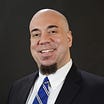
Tucker Carlson recently got canceled, at least to the extent that someone at his level can. A few weeks ago, one of his private text messages from January 7, 2021 “re-surfaced”—meaning that an opponent spent a great deal of time and lucre digging it up—in which the former television host described the multi-person jumping of a black-clad Antifa fighter by the Proud Boys or some similar group as “not how white men fight.” In our race-panicked era, this message was reportedly at least part of the reason Tucker was let go at FOX News, tanking the network’s ratings to previously-undreamed of “CNN” levels.
While most people in 2023 would likely condemn the single five-word quote at the center of all the mainstream media attention, it’s worth noting that most of the text message it is drawn from actually consists of Carlson feeling bad about his various “immoral” thoughts. After the “white men” quote, and an observation that he had initially found himself rooting for the mob kicking a political rival’s ass, Carlson went on to conclude: “Somewhere deep in my brain, an alarm went off! The Antifa creep is a human being. If I reduce people to their politics, how am I better than he is?”
It’s telling that the media outlets that ran with this story decided to bury the laudable point Carlson was making in this text—that our political opponents are human beings, and we should all condemn political violence even if it comes from “our side.” But the Carlson “scandal” also touches on a pair of core problems with modern American group relations—double standards, and hyper-sensitivity. How this case presents an example of a double standard is easy to illustrate. Simply put, I—or indeed a far more famous Black man—would not get fired if I did the exact equivalent of what Carlson did. If I, for example, went on Twitter to describe polyamory as “some white pervert shit,” I wouldn’t give any thought to whether it might cost me my job.
Routines with names like “White People Do This, Black People Do That” and “Differences Between White People and Black People” have been mainstays of mainstream Black/urban comedy productions for decades. The Root, a light-hearted but widely-read African-American news and culture magazine, holds annual “Becky Awards,” which jokingly “honors” that year’s most stereotypical white Americans, and “Blackest Awards,” which recognizes the “most Black Black people.” The winner of the Beckies gets the Golden Mayo/Golden Mayonnaise trophy, while the winner of the Blackests gets the Skippy—-named after Henry Louis “Skip” Gates, Jr. None of this is a joke, although, in some sense, all of it is.
Far more seriously, whereas Carlson was mostly made to look like he was dehumanizing people, there are plenty of examples of prominent black media figures who actually have said dehumanizing things about people of other races. As a college student, Ibram X. Kendi penned a widely-read article arguing that Caucasians are “aliens from outer space.” Similarly, Nikole Hannah-Jones as a college sophomore described white Americans of the past as “barbaric devils” and all those alive today as “descendants of these savage(s).” Granted, these are views Kendi and Hannah-Jones expressed decades ago, and it’s likely that they would think differently today. But recent examples are easy to come by as well. Just last year, in an interview with The Root, Rutgers University’s “Professor Crunk” declared that white folx “are committed to being villains” and that “we gotta take these motherfuckers out.”
Higher-level double standards around race and engagement are so commonplace that they generally go unnoticed. I myself am an occasional member of at least 4-5 Black professional organizations: the NAACP, the National Bar Association, various alumni associations, and the like. There is nothing inherently wrong with this, but no Caucasian equivalents for most of them exist or practically could. As I recently noted on social media: “a real issue in American race relations is that only whites are actually expected to follow what is presented as the universal normative standard: no ethnic-over-national identification, no slurs or mild ethnic jokes ever, no admitting to some preference for your group, etc.”
The second issue that relates to the Tucker affair is the hypersensitivity of our culture today. The sheer width of the Cancel Shroud is so all-encompassing that relatively innocuous acts are regularly deemed serious enough to upend someone’s life. Most people wouldn’t fiercely object to the obvious double-standard on this issue if what was deemed cancellation worthy were restricted to, for instance, crudely screaming racial insults—”nigger,” “mick,” and the like—at other people. But, that is not what we have. The actual rule in place in American upper-middle class life appears to be something closer to a blanket policy against using certain magic words in any context.
At least a dozen people have been expelled or fired for saying “The N Word” while singing along with hit rap songs during just the past three years. Perhaps most remarkably, top quarterback recruit Marcus “The Joker” Stokes lost a full football scholarship to the University of Florida—and later, tearfully, lost another one to a historically Black college for the same reason. Bloomberg recently published an entire, dead-serious explainer titled “Can You Say The N-Word If It’s a Rap Lyric?” (very iffy, they conclude). The New York Times fired top reporter Don McNeil for saying “nigger” during a discussion with high school students about when the use of controversial terms is “OK” in the newsroom or the classroom.
With no judgment or praise, it is worth asking: what percentage of people have truly never quoted an uncensored musical lyric in a text message, or told any off-color joke to a diverse group of friends in a locker room, or used some term upstream from “bitch” while gaming or playing hoops or committed another one of the myriad modern mortal sins? The honest answer to this question is almost no one.
It is our collective inability to publicly acknowledge this truth that gives cancel culture such power. The huge majority of citizens might casually disapprove of what Tucker Carlson said in a stolen text message (or hot mic video)—while also feeling that no one should be fired for it and that similar “dirt” exists on most people. But the calculus going through many of our heads is: “why stand up and say that—who needs some time-on-his-hands clown digging through all of my old tweets?”
But, in reality—when it comes to something as important as race relations, and how people relate to each other in our society more generally—more serious adults do need to stand up and say the obvious: we need one standard of behavior for everyone, and it needs to actually make some damn sense.
The opinions expressed here do not necessarily reflect those of the Foundation Against Intolerance & Racism or its employees.
In keeping with our mission to promote a common culture of fairness, understanding, and humanity, we are committed to including a diversity of voices and encouraging compassionate and good-faith discourse.
We are actively seeking other perspectives on this topic and others. If you’d like to join the conversation, please send drafts to submissions@fairforall.org.



Professor Reilly, it's thinking like this and the courage to say it that give me hope for our future.
"The sheer width of the Cancel Shroud is so all-encompassing that relatively innocuous acts are regularly deemed serious enough to upend someone’s life."
As an attorney, I'm a big free speech fan. Everything about this goes against the very creed of liberty. I recall once years ago, using the "N" word in the following fashion: my uncle often made racist comments or jokes against black people, and I found it crude and offensive, but he would just laugh me off. So one day in front of my grandmother (his mother-in-law, in front of whom he would never dream of speaking that way) I had an opportunity to say something to the effect of "Yeah Don, we sure wouldn't want the "N"s around, would we?" She pricked up her ears in shock; he turned beet red in shame. I was a white person using the word for the specific purpose of undermining white supremacy, but this cancel culture makes no such exception. Talk about chilling.... I also remember a white sheriff asking me two decades ago, when I was a criminal defense attorney: "What word can a black man call a white man and go to jail?" Which is to say, the distinction is patently racist.... A criminal punishment meted out (or not) solely based on skin color -- and also without regard to INTENT. Scary times. Great piece!